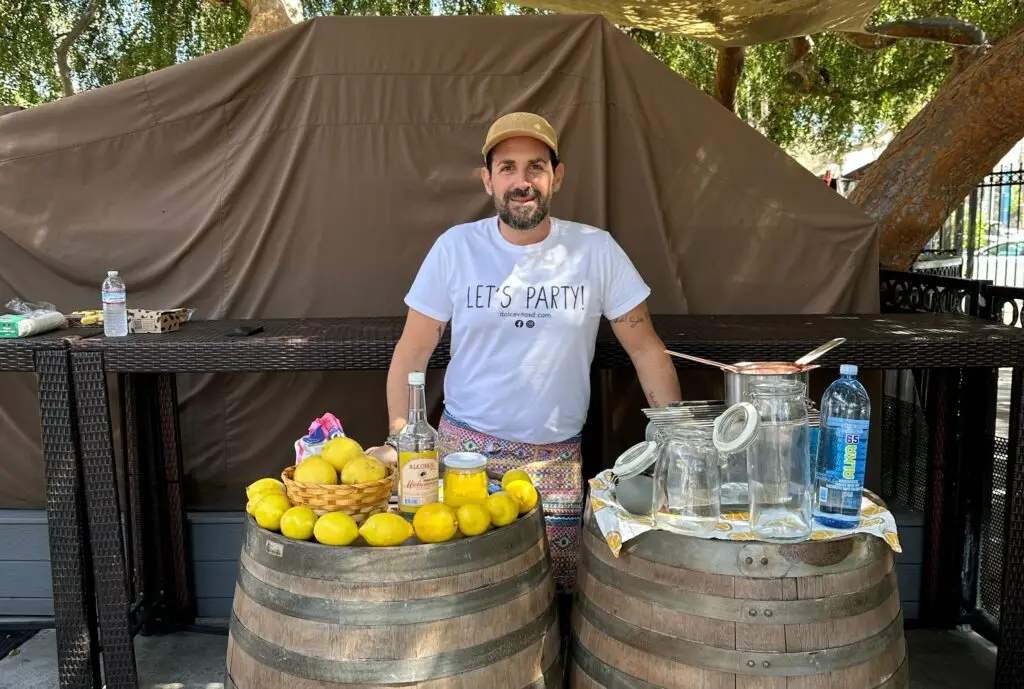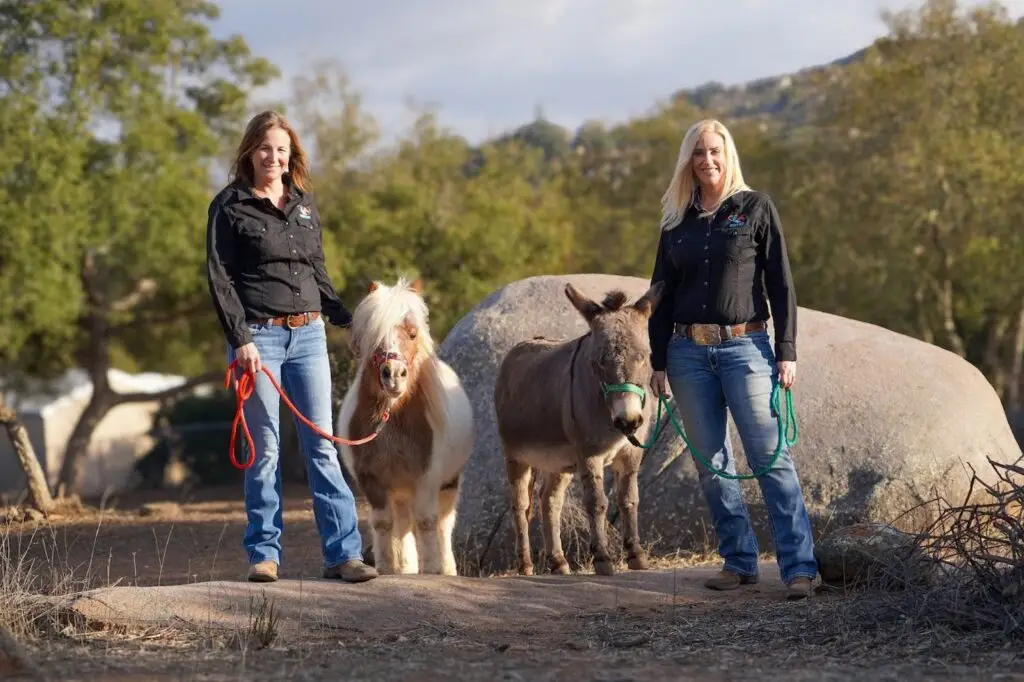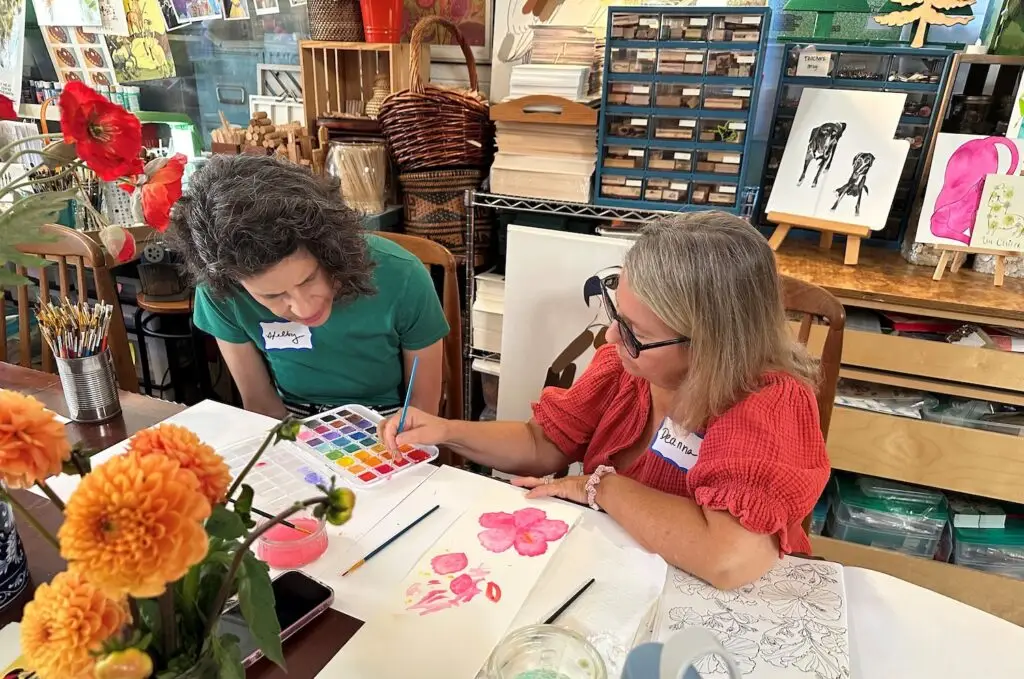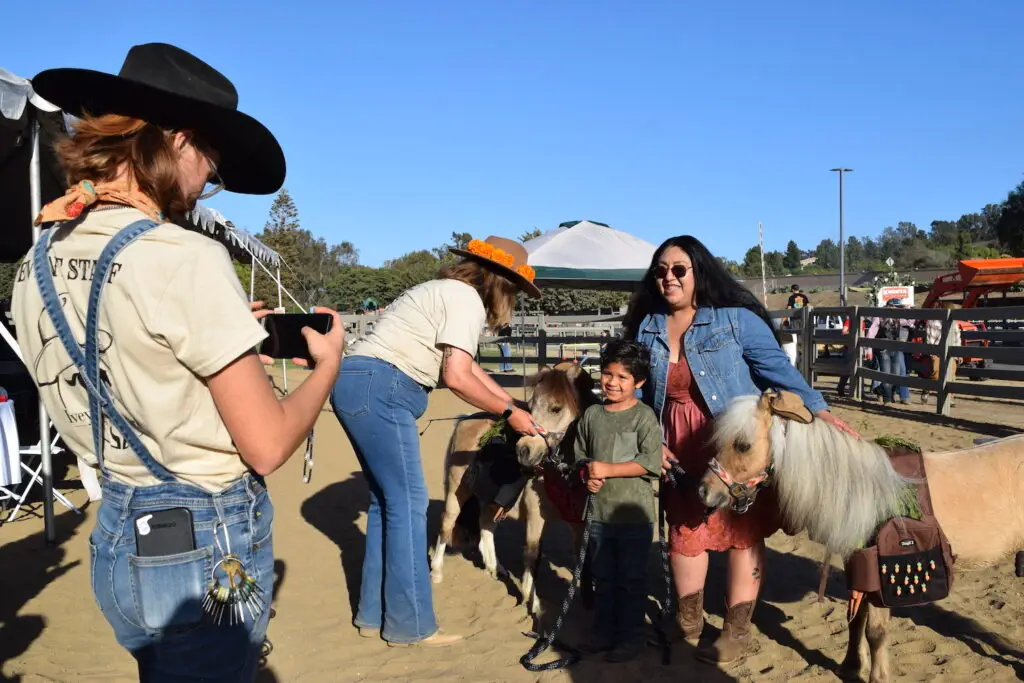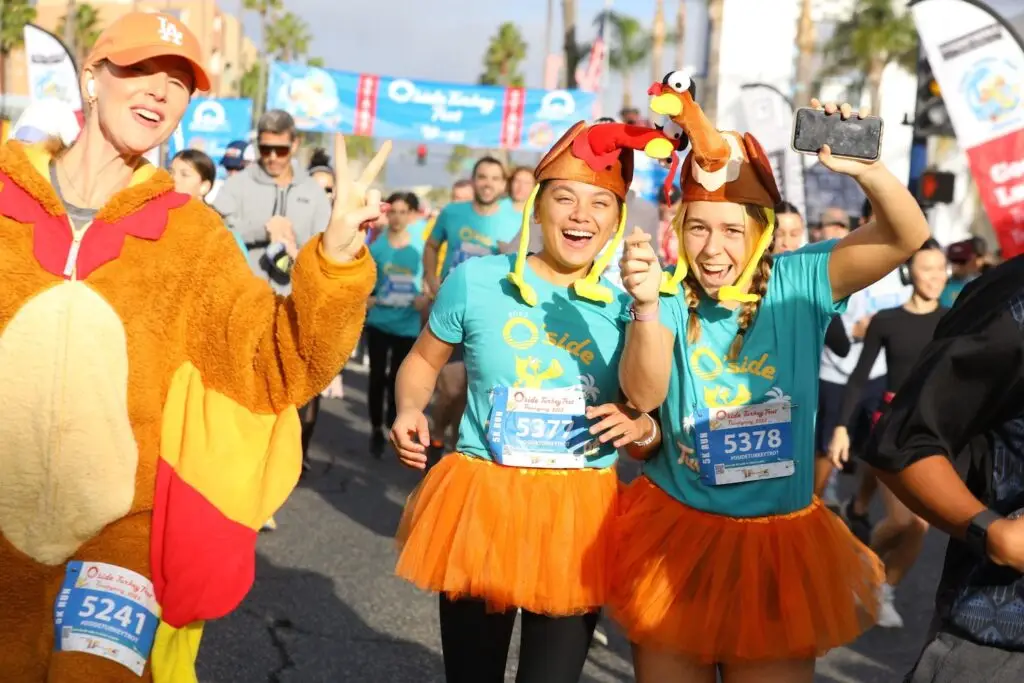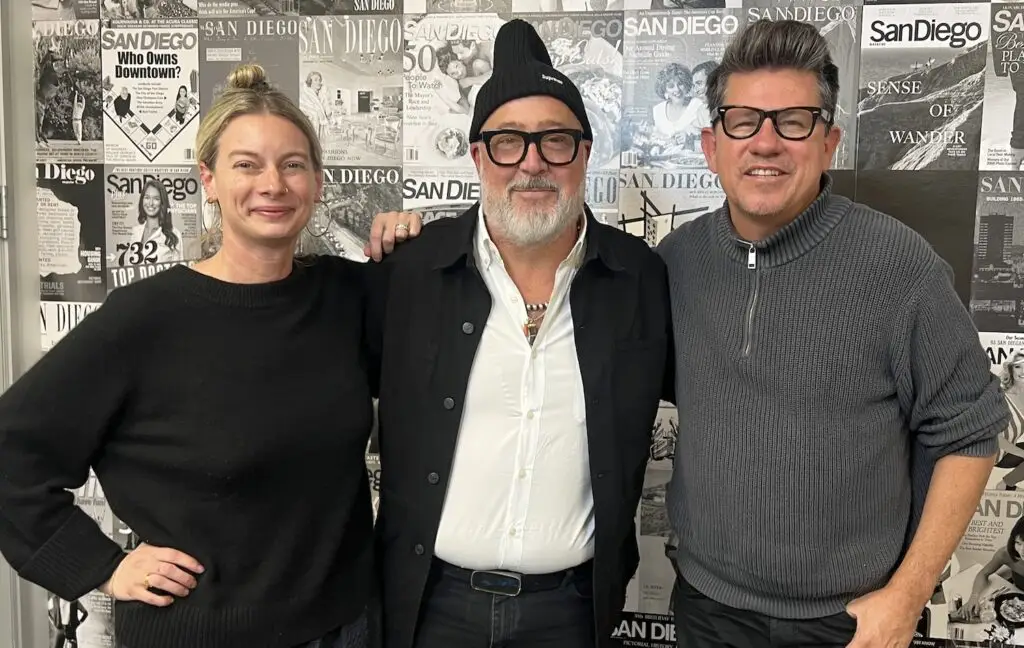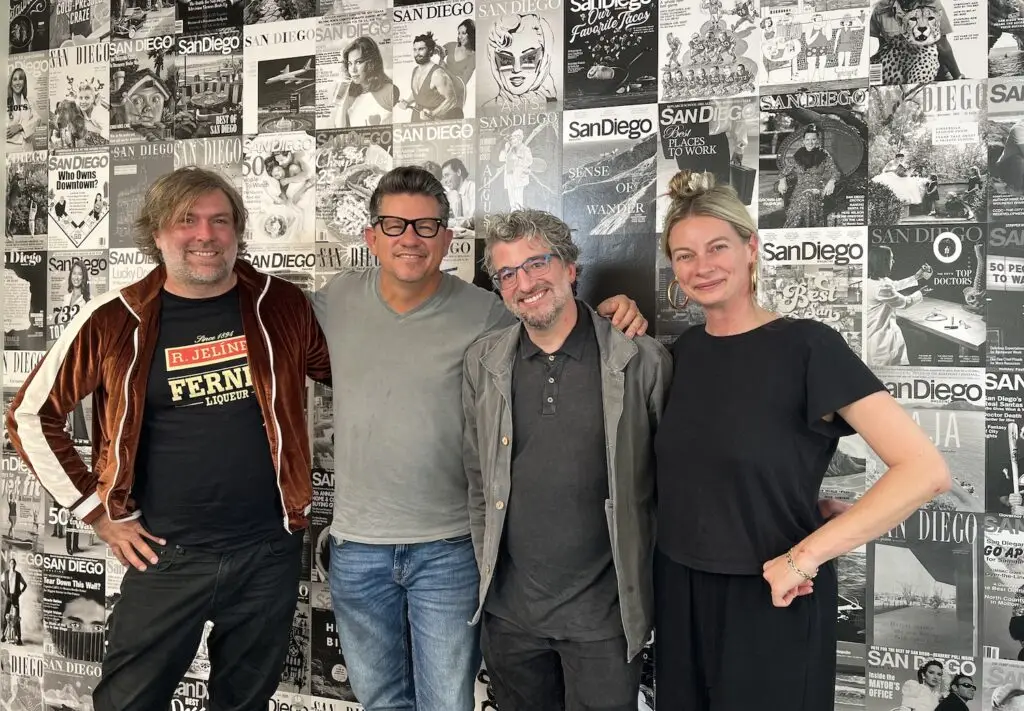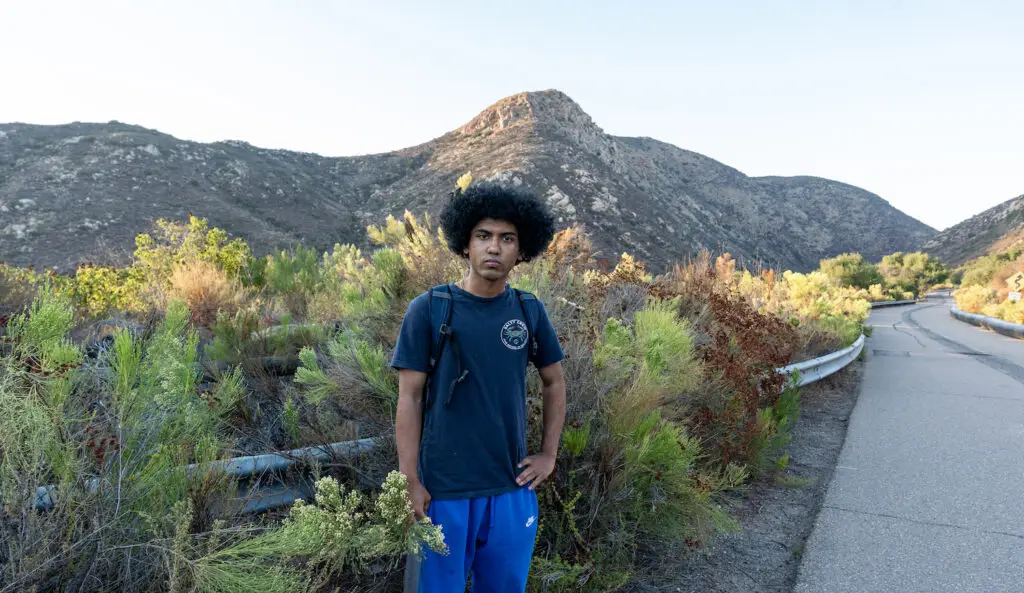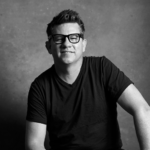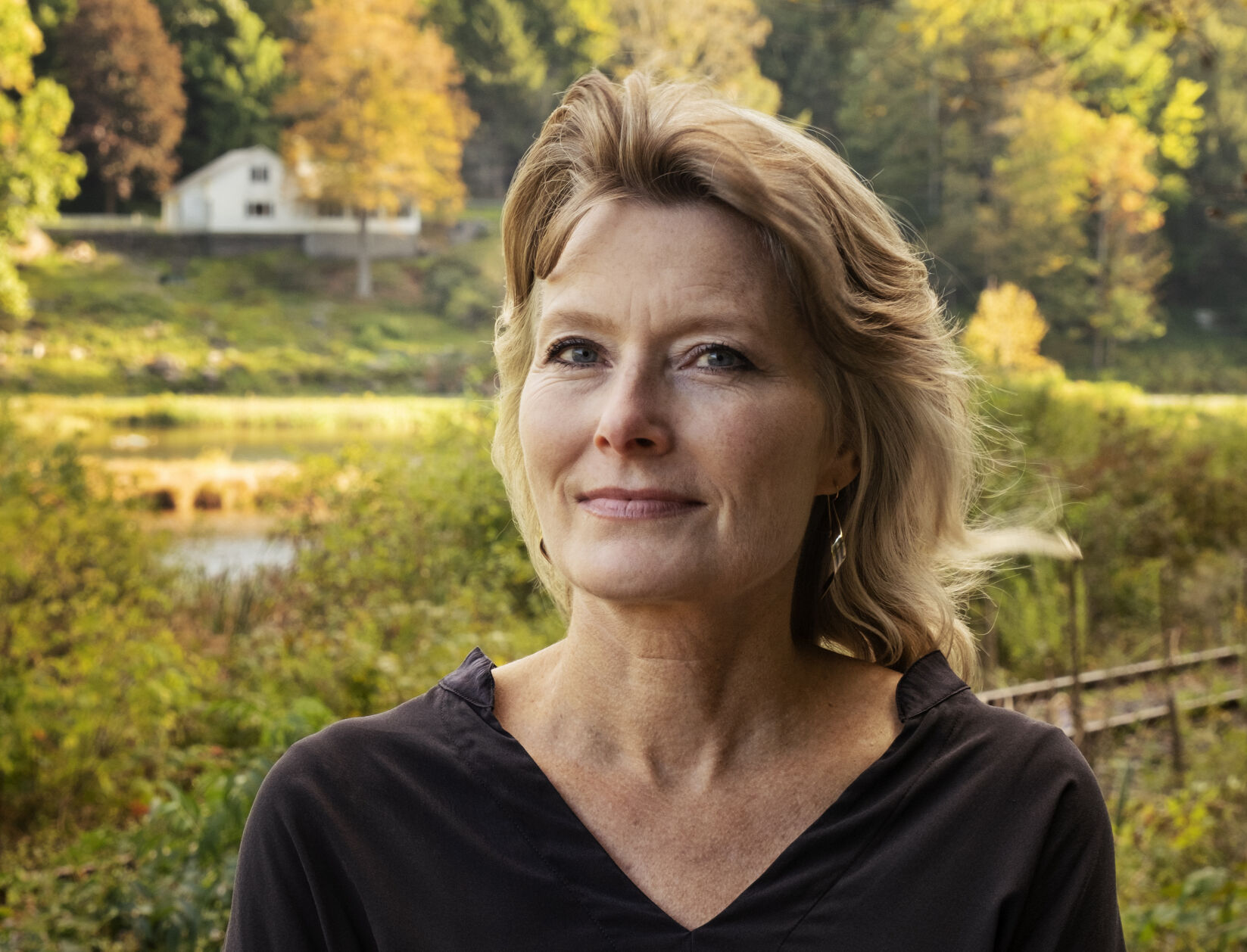
Jennifer Egan
Pieter M. Van Hattem
The Pulitzer-winning author of A Visit from the Goon Squad, Jennifer Egan, joined SDM content chief Troy Johnson for an IG Live to talk about her award-winning novel, which kicked off the CH + SDM Book Club.
We’re kind of geeked.
When we started this book club with Consortium Holdings Projects, we were just two companies with a shared affinity for books that have the power to shape lives. Now, we’re 1,000+ members strong, breaking down a novel’s themes with the author herself.
Jennifer Egan does not like to go backwards in time. She likes to go forward and she has been gracious enough to go backwards 10 years to A Visit From the Goon Squad, which was her amazing, visceral, beautiful book. She’s written a ton.
In fact, she just released a new one, The Candy House, which Obama said was one of his favorite reads of the summer. Watch the full conversation above, or read the condensed transcript below, which highlights some of our favorite moments.
Chief Content Officer, Troy Johnson (TJ):
I wouldn’t say that [Goon Squad] is a rage against the machine, but you show a little trepidation about the machine. And social media…
Pulitzer Prize-Winning Author Jennifer Egan (JE):
I’m kind of an incompetent machine. I think about a new device and I think how long will it take me to be able to use it and how much will I screw it up? But I have nothing inherently against any of it.
TJ:
I was reading about your process of writing, which is fascinating and a bit luddite too.You write everything out by hand?
JE:
I write by hand for fiction [because] fiction requires a connection with my unconscious, with the part of me that is not thinking and not critiquing the part of me that in some ways can surprise myself and handwriting. And by that I really mean cursive because printing doesn’t do it. But cursive seems to activate that part of my brain, and it has some additional advantages. I can’t really read it very well because my writing is appalling. And so again, I don’t have that urge that I think we all have when we look at a screen to like back up and make it better, I can’t do that. And it seems that I get into a less thought driven state of mind in which I can enact a kind of improvisation on the page. And that’s what leads to my best material.
TJ:
Athletes get that way… performers get that way … they talk about it being a flow. Where you’re so engrossed and you don’t have the backspace button, the only way through it is forward, right?
JE:
Absolutely. And what you said about the only way forward is actually really important because I don’t do much editing at all as I write. Most importantly, I don’t read over what I’ve written until the next day, and I do that basically just to reenter that flow.
TJ:
In [the first couple pages of] Goon Squad, Sasha is staring at a purse, which is sitting on the floor in a bathroom… and she’s listening to somebody pee. It’s so imperfectly human… How do you come up with those first [scenes] and how do you know when you found them?
JE:
For me, starting with a physical environment is a crucial part of the process because I want to sort of be in a sensory environment [or] space where someone is observing sensory details of a physical environment. Then the question is, who is making these observations? Who is perceiving the woman peeing or anything else that is the beginning of a character? And then what does that person do or who else is there? And now we have the beginning of more characters and action.
In that particular case… there was a corollary from my own life, which is that I was in a hotel bathroom; I did see a wallet. And what it evoked for me was one of too many memories of having actually been robbed. I saw that wallet and I thought, Oh my God, someone’s gonna take it. And then I thought, Well, I’m the only one here. I’m obviously not gonna take it. But in general, I don’t write about my own life. And what I’m most curious about is a point of view opposed to mine. So if I’ve been robbed… what’s it like to be the one who steals the wallet and my curiosity was provoked.
TJ:
It seems to me you love imperfection [and] fallibility of humanity. Every character lives with myriad flaws in Goon Squad yet they’re not unlovable… you have so much compassion for them.
JE:
We are contradictory characters full of big dreams [living in an] imperfect reality. Anyone who looks perfect is a person you’re seeing from a distance…And there’s such a chasm between that knowledge that we have of ourselves and the self that we have to present to the world around us. To me, the job of fiction is to actually get inside that imperfection. I think there’s a part in all of us that wants to be perceived as better than we are, but in a way, the whole idea of better or worse is sort of a misnomer because we are complicated creatures.
TJ:
How much time did you spend in punk clubs? What role did music play in your life?
JE:
I spent a fair amount of time in punk clubs. I was not a real punk rocker by any means. I did what I had to do to look the parts so that I didn’t stand out as the wallflower observer that I always have basically been. But I saw a lot. It was such a vibrant, crazy scene and in a way most crazy because it was following right on the heels of 1960s San Francisco, which was still really visible when I was growing up in the seventies.
TJ:
You once described Goon Squad as a concept album from the seventies. Can you explain that?
JE:
A Visit from the Goon Squad and The Candy House [are in the] same world; these are ensemble books that have a kind of kaleidoscopic quality.It’s different people’s stories put together to tell one big story, and so, the question for me is…what is the genre that I’m participating in here? It seemed clear that in the case of Goon Squad, it was the concept album, which of course still exists, but we listen to music differently now.
[With] vinyl… you had to play it in order…unless you wanted to keep moving the needle around. And [these concept albums] usually opened up into what was basically a book.There were pages. There were lyrics on the pages, there were graphics, so it had a kind of literary quality unto itself at the time. And there were some absolutely fantastic concept albums there in that decade…amazing albums that told a big story in small pieces that sounded very different from each other, and that felt like a pretty perfect description of what I was trying to do in Goon Squad.
TJ:
[Goon Squad] is about what time does to us. Everybody’s trying to reclaim [the] past; everybody’s trying to accelerate in life and ending up on different paths. And you [also discuss] nostalgia. What are your big takeaways on time?
JE:
I don’t know if I have a big takeaway. For me, novels are a place to raise questions, not so much to answer them, but here’s one thing I will say. Time is the essential ingredient of fiction. On some level, fiction is always about time passing, even if that unit of time. A minute or an hour or a day time is what brings change.
[It] was fun to write a book that was specifically about the thing that in some ways every book is about. Time is what makes human life possible in a way. It’s what allows for change. And change is really kind of what we’re made of.
TJ:
I want to know how you collect your details. [For example,] the fact that Bennie Salazar puts gold flakes in his coffee to resuscitate his sexuality, and then also he sprays insecticide into his armpits. Those crazy details—[are they] coming from the unconscious…or do you collect them when you see them?
JE:
I don’t collect anything. I’m really glad you brought up that example, because that really is a good illustration of how my writing process works.
When I was writing that first chapter about Sasha [and the wallet], I briefly mentioned in a totally unplanned surprise in the writing process that her ex-boss, a record producer, put gold flakes in his coffee and sprayed pesticide in his armpits. I was not expecting those details, and in the moment, all they meant to me was a kind of funny description of an eccentric record producer, and of course, not knowing any record producers myself, I thought, Oh yes, they’re sort of decadent. That kind of makes sense. And he didn’t even have a name.
But after I finished that chapter, which at the time I just thought was a short story, I thought, Why does he do those things? So I started writing from his point of view [to find out.]
TJ:
So let’s move into Candy House. Some people called it a sequel. Some people have called it the prequel. Some people call it an expansion of that universe that you built in Goon Squad.
JE:
In writing books that have unusual forms [wherein] each chapter has a different mood and tone and vibe. In books like [this], there’s a high failure ratio. A lot of things I try just don’t work, right? So the result of that is that by the time I finished Goon Squad, there were things I knew that the reader didn’t know, and those were the things that were in the chapters that didn’t work. So it never really felt finished.
And I think it’s also just the nature of these ensemble stories that they aren’t finished because each person has new peripheral people in their lives. Peripheral to the reader. That could also be explored. And part of what is fun about these books, I hope, is going from seeing someone as a peripheral character to being plunged inside their point of view and being reminded of the fact that there are no peripheral characters in real life.
We are each our own universe of perception and history.
TJ:
One of your characters in Goon Squad retraces her steps through Koreatown, through the gutter, through the restaurant, trying to find a specific pen.There’s an obsession about your characters… do you love obsession? Are you fascinated with it? Are you obsessed with it?
JE:
That’s an interesting question. When I published the first chapter of Goon Squad as a standalone, about a woman who has a compulsion to steal, I got wary questions from neighbors, from parents of kids that were friends with our kids like… Is that something you’ve struggled with? And I’m sure they were thinking, okay, we gotta count the silver after a few visits. And the thing is: the answer is no. And in fact, I probably wouldn’t have been able to write about it if it had been a specific problem that I’ve had.
Everyone that I write about is extrapolation. We’ve all had some kind of compulsion towards something that we knew was not good for us and yet wanted to do because in the short term, there was a kind of pleasure payoff. I’m usually extrapolating from something that feels akin to what I’m writing about, in the obsessive department. I think I don’t know if I am so much obsessive as I am very single minded at times, so if I’m working on something, I do find that in one way or another. It’s sort of rattling around my brain all the time and I am very perfectionistic, which is not a great quality I have to say. Because we never achieve perfection. But this kind of doggedness to keep going, give it one more try whatever I’m doing, that I think that in that way there is a kind of obsessive streak that I see in myself.
TJ:
A lot of your characters are either trying to reclaim excitement, they’re trying to reclaim a glory to bring up that old fire to the fan, the flames of a fire that they feel like they’re missing.
JE:
Certainly in Goon Squad we see people who are idealizing their past in one way or another. Goon Squad is a book that’s explicitly about time. This discovery of how far we’ve traveled from a certain point in our lives and a question about whether we’ve lost something in the process.
The very experience of time passing can be experienced as loss.There are big losses that come along…big, big losses of people we love, and the longer you’re alive, the more of those you’re gonna experience.
But even if all of the players are still alive, looking back on, for example, I’m a mother of kids who are now 19 and 21, they’re not even kids. I can start to feel a sense of loss in a certain mood by looking at pictures of them when they’re really little or videos. Because I miss that moment. So the experience of time passing can feel like loss, but it’s just how we tend to perceive things.It doesn’t mean that it’s exactly true, but there’s poignancy to it.
TJ:
What you are reading now and what do you love?
JE:
Fiction is like an amazing time machine. I love reading 19th Century both because I want to write a book set in the 19th century and because I love knowing viscerally what it was like to live before all of the inventions that we take for granted were around us.These [old] books were all serialized, so they have lots of characters.They follow people at different points in their lives. There’s a lot of lateral storytelling, so we’re not even quite sure what the big story is sometimes, but we’re just interested moment by moment. I just read North and South, which is a book by Elizabeth Gaskell, a 19th century author.
I’ve [also] been reading a lot of mysteries from the 1950s and actually this is a mystery from earlier… The Murder of Roger Ackroyd, which is one of Agatha Christie’s first mysteries. It is so good.
TJ:
Have you ever found yourself unable to write?
JE:
It’s interesting, I have not, knocking on wood right now. I think the only reason is that my process, which I’ve described, really involves writing very sloppily and badly. And in fact, when I’m writing, my goal is simply to fill a certain number of pages a day and if I do that, I count it as a [success]. It’s not about writing well, it’s about filling the page; the difference between an empty page and a full page is much greater than the difference between a bad page and a good page. A bad page can be made good, but an empty page is really a problem.
Pick up Jennifer Egan’s newest book, The Candy House, here.
PARTNER CONTENT
Support local bookstores. Join the club.


